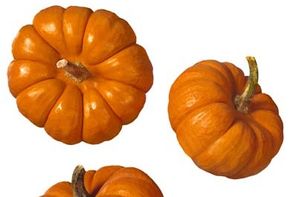Gas is a side effect or symptom, not an illness in itself. And it's a symptom that can be treated several different ways with home remedies you can find in the kitchen.
Home Remedies from the Cupboard
Beano: Keep it sitting right next to that bag of dry beans to remind you it's a gas-busting enzyme that breaks down hard-to-digest disaccharides, thereby avoiding the formation of gas. Use this product as you eat the gassy foods, not afterward. It's available at groceries and pharmacies.
Caraway crackers. Caraway seeds and their oils are carminatives (they get rid of gas), but who wants to eat just the seeds? Caraway-seed crackers and breads with caraway seeds are a tasty way to make your system gas-unfriendly.
Pressure cooker. Beans that are undercooked are more likely to cause gas than beans that are well-cooked. To ensure that your beans are cooked thoroughly, pull out the pressure cooker and follow the manufacturer's advice for cooking beans. Or, cook them up to pressure for 30 minutes at 15 pounds per square inch on the gauge.
Home Remedies from the Drawer
Paper. And a pen. List the foods that are causing your gas. Include such information as the type of food, when you ate it, and how much you ate. Do you get gassy after gulping down cucumbers or cola? Or maybe it happens after eating ice cream? The truth about most gas is that, in some way, you're causing it. If you want to find out how, a food diary is one of the easiest ways to recreate the events leading up to the noxious crime.
Home Remedies from the Refrigerator
Citrus fruits. Vitamin C in tablet form may cause gas, especially amounts in excess of 500 milligrams. So, reduce the dosage and replace the C with citrus fruits -- they're high in C. Also try potatoes and sweet peppers, two high-in-C vegetables.
Pumpkin. It soothes the tummy, and best of all, it cuts down on flatulence. Try some baked, steamed, or broiled. Or, make yourself a simple pumpkin soup.
Yogurt with acidophilus. It alleviates digestive woes, including gas. But the yogurt must have live acidophilus, a bacteria that helps with digestion.
Home Remedies from the Spice Rack
Cardamom seeds. These speed digestion. Add them to sautéed vegetables or to rice or lentils before cooking. You can also chew whole pods or steep pods in boiling water for several minutes to make a tea.
Cloves. They pep up digestion and eliminate gas. Add 2 to 3 whole cloves to rice before cooking. Sprinkle on apples and pears when baking. Or steep 2 to 3 whole cloves in a cup of boiling water for ten minutes, sweeten to taste, and drink.
Coriander. This helps in the downward movement of foods being digested and can ease cramps, hiccups, bloating, and flatulence. Crush the seeds into powder and add to foods such as vegetable stir-fry. Its flavor really enhances curry and Middle Eastern dishes, too.
Fennel seeds. It's an acquired taste, but it may be one well worth acquiring if you're plagued by gas. Fennel's digestive powers are so good that in India, fennel is customarily eaten after a meal to help digestion and freshen the breath. For gas, drink it as a tea by steeping 1/2 teaspoon seeds in 1 cup boiling water for ten minutes. Or, sprinkle them over those gassy vegetables during cooking or add to stir-fries. If you've acquired the taste, fennel also works well cooked into figs, apples, pears, and plums.
Lemon. Stir 1 teaspoon lemon juice and 1/2 teaspoon baking soda into 1 cup cool water. Skip the ice water; it can start digestive spasms that cause gas. Drink after meals.
Massage herbs. Add any of these to massage oil and rub over the abdomen to relieve gas: cardamom, clove, cinnamon, fennel, ginger. Warmed olive and sesame oils are wonderful for massages.
Rosemary. If you're eating a gassy food, sprinkle on a little rosemary to cut the effect. You can do the same with sage and thyme, too.
Tea herbs. Steep and drink a tea made from any of these: aniseed, basil leaves, chamomile, cloves, cinnamon, ginger, peppermint, sage. Steep about 1/2 teaspoon in 1 cup boiling water, then add honey or lemon to taste. Drink one to three times each day.
Turmeric. This may stop a gas problem altogether. Turmeric is one of the many flavorful and curative spices found in curry powder. You can add turmeric itself to rice or season a bland dish with curry powder, which contains turmeric. However you use it, it helps alleviate gas.
For more information about intestinal gas and other digestive ailments, try the following links:
ABOUT THE AUTHORS:
Timothy Gower is a freelance writer and editor whose work has appeared in many publications, including Reader's Digest, Prevention, Men's Health, Better Homes and Gardens, The New York Times, and The Los Angeles Times. The author of four books, Gower is also a contributing editor for Health magazine.
Alice Lesch Kelly is a health writer based in Boston. Her work has been published in magazines such as Shape, Fit Pregnancy, Woman's Day, Reader's Digest, Eating Well, and Health. She is the co-author of three books on women's health.
Linnea Lundgren has more than 12 years experience researching, writing, and editing for newspapers and magazines. She is the author of four books, including Living Well With Allergies.
Michele Price Mann is a freelance writer who has written for such publications as Weight Watchers and Southern Living magazines. Formerly assistant health and fitness editor at Cooking Light magazine, her professional passion is learning and writing about health.
ABOUT THE CONSULTANTS:
Ivan Oransky, M.D., is the deputy editor of The Scientist. He is author or co-author of four books, including The Common Symptom Answer GuideBoston Globe, The Lancet, and USA Today. He holds appointments as a clinical assistant professor of medicine and as adjunct professor of journalism at New York University. (McGraw-Hill, 2004), and has written for publications including the
David J. Hufford, Ph.D., is university professor and chair of the Medical Humanities Department at PennsylvaniaState University's College of Medicine. He also is a professor in the departments of Neural and Behavioral Sciences and Family and Community Medicine. Dr. Hufford serves on the editorial boards of several journals, including Alternative Therapies in Health & Medicine and Explore.
This information is solely for informational purposes. IT IS NOT INTENDED TO PROVIDE MEDICAL ADVICE. Neither the Editors of Consumer Guide (R), Publications International, Ltd., the author nor publisher take responsibility for any possible consequences from any treatment, procedure, exercise, dietary modification, action or application of medication which results from reading or following the information contained in this information. The publication of this information does not constitute the practice of medicine, and this information does not replace the advice of your physician or other health care provider. Before undertaking any course of treatment, the reader must seek the advice of their physician or other health care provider.


